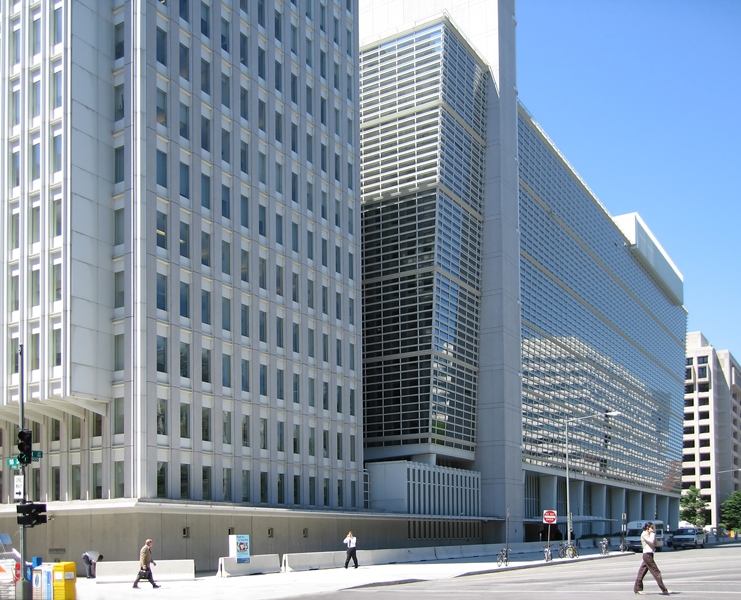


Barran Press
The World Bank has issued a stark warning about the deteriorating state of Yemen's public finances, attributing the decline to a significant shift in import routes from Aden to ports controlled by the Houthi rebels.
The Bank's latest Yemen Economic Monitor report, seen by "Baran Press," revealed that the internationally recognized government's revenue plummeted by over 30% in 2023. This decline was attributed to a sharp drop in oil revenue and a reduction in customs income due to the redirection of imports away from Aden.
In response, the government implemented drastic spending cuts, impacting essential public services and long-term economic growth, according to the report.
The report also highlighted the widening current account deficit, which reached 19.3% of GDP in 2023, up from 17.8% in 2022. The imposed blockade on oil exports significantly impacted the trade deficit, while foreign currency reserves remained relatively stable thanks to financial support from partners, including the allocation of Special Drawing Rights from the International Monetary Fund.
The World Bank noted that the resumption of cash financing by the internationally recognized government exacerbated inflationary pressures, leading to varying inflation rates across regions. While Sana'a experienced deflation at -11.8%, Aden faced high inflation at 7% due to currency depreciation.
The report also revealed that the cost of essential goods in Aden has risen, with many Yemeni families now spending over 60% of their income solely on food.
Overall, the World Bank concluded that the Yemeni economy faces significant obstacles, with the ongoing conflict and regional tensions exacerbating the economic and humanitarian crises. The Bank projected a contraction of 1.0% in Yemen's GDP in 2024, following a 2.0% contraction in 2023 and a modest 1.5% growth in 2022.
Commenting on the report, Dena Abu Gheidah, World Bank Country Manager for Yemen, stated, "The economic and humanitarian challenges in Yemen are becoming increasingly acute, but the potential for recovery remains with the right support and strategies."
The report emphasized crucial areas for action, including addressing pressures on public finances, mitigating trade disruptions, and stabilizing the currency. The World Bank reaffirmed its unwavering commitment to supporting Yemenis in overcoming these crises, providing assistance, and paving the way for a sustainable and resilient future.
The report also highlighted that continued pressures on public finances and economic fragmentation between the north and south threaten to deepen divisions and complicate recovery efforts.
For instance, the redirection of imports has led to a significant drop in customs revenue for Aden, exacerbating economic conditions in the south compared to the north. The potential for increased aid and investment hinges on achieving a lasting ceasefire and a commitment to reconstruction from all parties involved.
The report drew attention to the severe impact of escalating regional tensions, particularly Houthi attacks in the Red Sea, which have disrupted international shipping and trade. These attacks have increased shipping costs and insurance premiums, further straining the Yemeni economy.
The report stressed that Yemen's economic outlook remains highly uncertain. Resuming oil exports and achieving widespread economic recovery are unlikely without a lasting peace agreement. Ongoing regional conflicts, currency depreciation, and pressures on public finances pose significant risks.
The World Bank report concluded that a lasting peace agreement could swiftly improve Yemen's economic prospects, alongside external financial assistance and reconstruction efforts.
On June 2, 2024, a report by a group of World Bank experts highlighted the impact of the maritime crisis in the Red Sea, caused by attacks on commercial ships by the Houthi group, which is internationally designated as a terrorist organization. The report indicated that the effects were most pronounced on ports in the region, particularly those in Yemen and Saudi Arabia.
The report explained that disruptions to Yemeni ports, for example, had tangible consequences, particularly in Saudi Arabia, with the impact diminishing with distance from the conflict zone.
The report stated that the impact was more pronounced in Red Sea ports and their associated economies, with many experiencing decreased traffic while a few benefited from the redirection of ship traffic.
Yemen faces a severe currency crisis, with the local currency experiencing significant depreciation. The exchange rate of the Yemeni rial against foreign currencies has reached record lows in Aden and areas under the control of the Yemeni government. The dollar has surpassed 1800 rials, up from 1676 rials in late April. The Saudi rial has also reached 477 rials for sale, up from 441 rials.
The Yemeni economy also faces significant challenges due to the currency split imposed by the Houthi group, which is internationally designated as a terrorist organization. These challenges intensified after the group's attacks on oil export terminals in October 2023, preventing the internationally recognized government from exporting oil.
On August 1, 2023, Saudi Arabia announced a new financial grant of $1.2 billion to the internationally recognized Yemeni government to support the general budget and strengthen the value of the Yemeni rial.